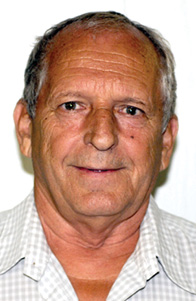Controversy surrounded Hicks’ voting process

The process in which a new city council replacement member was selected was challenged this past week by a sitting councilperson, Sarah Wilson-Browning, who claimed the first actions taken by the council on March 10 were “illegal.”
Although the final outcome did not change, with former long-time councilman Leland Hicks being appointed to fill out the unexpired term that ends December 31, the council had to have a second meeting to make the action official.
That meeting, and action taken, should correct any procedural errors made in the selection process last week.
Browning, who apparently was not questioning the vote totals, did challenge the process of how the replacement vote was first taken, and went as far as taking the issue to the Kentucky League of Cities legal department for an opinion.
At issue was the fact the council had not voted–by the nominees name–in public, but rather by secret ballot vote.
During a call meeting of the council last Thursday, March 10, each council member had submitted the name of a nominee and the ballots were counted by city legal advisor Norb Sohm, who announced after the count that Hicks had received the most votes.
Prior to those ballots being counted, however, Sohm had asked council members if they wished to vote in public or make the vote secret.
On a motion by Councilman Reed Sloan, seconded by Tonya Thrasher, the council voted unanimously on a “secret” ballot. Sohm then informed the council that in case of a tie vote, the top two people receiving the most votes would be voted on again–also noting the mayor could not break a tie vote.
After Sohm counted the paper ballots in a separate room and came back and announced the winner, Browning said, “I can’t understand why the names of the nominees were not mentioned.”
Sohm told Browning that there was a “case law” that said the council vote could be in secret.
“People are going to ask who the nominees were,” Browning said, with Sohm saying the council had the right to have secrecy.
Following that exchange, Thrasher moved to adjourn the meeting.
Shortly after last week’s meeting, Browning sought an opinion from Morgan M. Patterson, Director of Municipal Law with the KLC.
Also, she penned a letter to the “Mayor of Albany and all concerned Parties” which read in part:
“This is my formal letter notifying you of the lack of adherence to the Open Meetings Act…The council was advised by the city attorney to enter a secret ballot which (KRS) prohibited secret ballots.
“I propose another special called meeting immediately to rectify this situation by having an open vote and being compliant with the law of Kentucky. The vote was illegal, the vacant city council seat that was being discussed was never officially voted on, and therefore the vacant seat is still open.”
In Patterson’s response to Browning’s correspondence, the opinion did say under KRS 61.835 of the open meetings act the vote was not allowed by secret ballot.
Further, stated in part that “each official action taken, which include the appointment of a new member to a vacant position, must be done by a roll call vote and recorded in the minutes.”
Also, according to an Attorney General’s opinion, “the board cannot vote by secret ballot and its minutes must indicate how each member voted on the issue.”
Browning then requested another special meeting be held following the information received from the KLC and the remaining members agreed to meet on Monday of this week.
Apparently the actions taken during that meeting–the actual motion to appoint, as well as the roll call vote on the record–adheres to all Open Meeting Law rules and regulations.
During the second called meeting, Browning said, “I have no issue with Leland (Hicks),” saying it was a matter of the way they (council) were doing it and doing it correctly.
Sohm, totally agreeing with the KLC legal opinion, said there was a possibility there needed to be an actual vote, calling it a “procedural issue” “We did not go through with the final motion (at the first call meeting),” he added.
The city attorney also said the mayor, by statute, has no part in choosing a replacement member and could not break a tie vote, noting it was a “legislative, or council function.”



